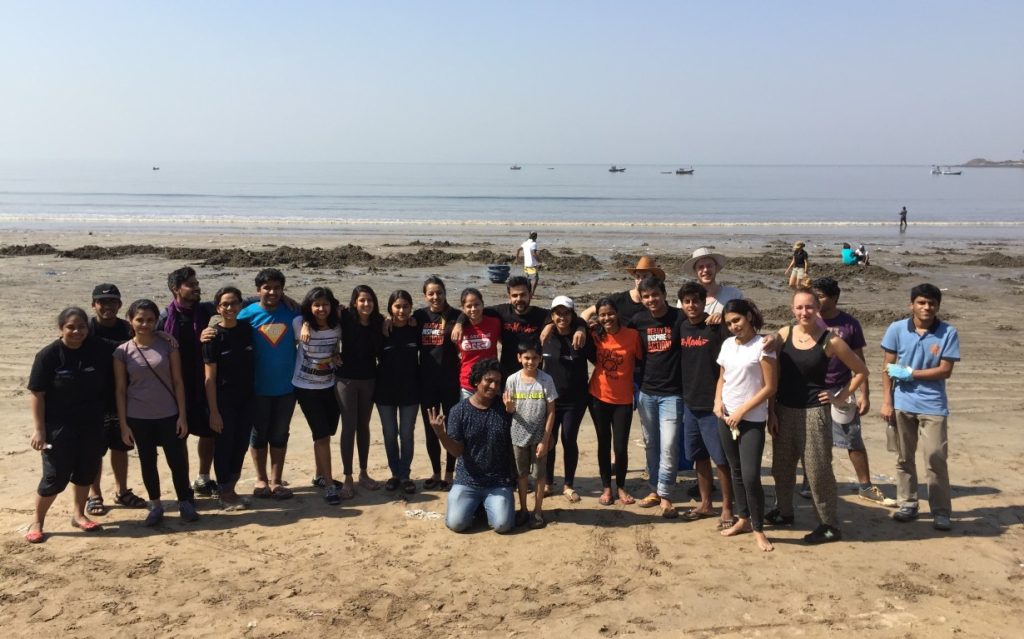
Earth Day: Corporate Social Responsibility and Earth5R's Role in Sustainability
Introduction:
As the world grapples with pressing environmental challenges, Earth Day stands as a beacon of hope, reminding us of our collective responsibility to protect and preserve our planet. In today’s corporate landscape, the role of businesses in environmental stewardship has become increasingly crucial. Corporate Social Responsibility (CSR) activities play a pivotal role in driving sustainable practices and mitigating environmental impact. Earth5R, a trailblazer in the field of sustainability, is at the forefront of empowering corporations to embrace CSR initiatives and make a tangible difference through innovative event planning, on-ground execution, and cutting-edge technology.
The Significance of Earth Day and Corporate Responsibility:
Earth Day, celebrated annually on April 22nd, serves as a global platform to raise awareness about environmental issues and promote actions to address them. For corporations, participating in Earth Day initiatives is not just an altruistic gesture; it’s a strategic imperative. In today’s socially conscious market, consumers, investors, and stakeholders expect businesses to demonstrate a commitment to sustainability and ethical practices. By engaging in CSR activities, corporations can enhance their brand reputation, foster customer loyalty, attract top talent, and drive long-term business value.
Why CSR Activities are Important:
Corporate Social Responsibility encompasses a broad spectrum of initiatives aimed at positively impacting society and the environment. From reducing carbon emissions and promoting renewable energy to supporting community development and advocating for social justice, CSR activities encompass a wide range of actions. These initiatives not only contribute to environmental conservation and social welfare but also align with the Sustainable Development Goals (SDGs) set forth by the United Nations.
Earth5R’s Role in Driving Corporate Sustainability:
Earth5R empowers corporations to translate their CSR aspirations into meaningful action through comprehensive event planning, on-ground execution, and leveraging the expertise of fieldwork specialists and volunteers. By collaborating with Earth5R, corporations gain access to a global network of sustainability professionals and community volunteers, enabling them to execute impactful CSR projects efficiently and effectively.
Event Planning and On-ground Execution:
Earth5R’s event planning services are tailored to meet the unique needs and objectives of each corporate partner. Whether it’s organizing tree-planting drives, waste management campaigns, or educational workshops, Earth5R ensures seamless execution from start to finish. With a team of dedicated fieldwork specialists and volunteers, Earth5R facilitates on-ground activities, ensuring that CSR projects are implemented with precision and care.
Carbon Offset and Impact Measurement:
One of the key metrics for evaluating the success of CSR initiatives is their environmental impact, particularly in terms of carbon emissions reduction. Earth5R employs state-of-the-art technology, including its award-winning mobile app, to calculate carbon offset and measure the environmental impact of corporate initiatives. By quantifying carbon emissions reductions and other sustainability metrics, Earth5R provides corporations with valuable insights into their ESG (Environmental, Social, and Governance) performance and helps them improve their carbon footprint.
Carbon Certificates and ESG Rating Enhancement:
Upon completion of CSR projects, Earth5R issues carbon certificates to corporate partners, certifying the carbon offset achieved through their initiatives. These certificates not only serve as tangible proof of environmental impact but also contribute to enhancing the corporate partner’s ESG rating. With Earth5R’s support, corporations can demonstrate their commitment to sustainability and enhance their reputation as responsible corporate citizens.
As we celebrate Earth Day and reflect on the imperative of corporate social responsibility, Earth5R emerges as a beacon of hope, empowering corporations to lead the charge towards a more sustainable future. By providing comprehensive event planning, on-ground execution, carbon offset calculation, and technology-driven impact measurement, Earth5R equips corporations with the tools and resources they need to make a tangible difference in the world. Together, we can harness the power of collective action to protect our planet for generations to come.

Earth5R Waste Management and Beach Cleanup at Mumbai
Corporate Social Responsibility Services by Earth5R:
1. Sustainable Urban Plantation Drives
Engaging staffs in urban plantation projects aimed at greening urban spaces, enhancing biodiversity with food and fruit bearing plants, and reducing urban heat island effects. Tailored projects include native species plantation, vertical gardens, and rooftop gardens in corporate campuses or community areas.
Impact Metrics: CO2 sequestration rate, Biodiversity Index improvement, Square meters of green space added.
2. Waste Management and CIRCULAR ECONOMY Workshops
Workshops on innovative waste management techniques and Circular Economy including segregation, recycling, and composting, followed by implementing a sustainable waste management system at corporate offices or in underprivileged communities.
Impact Metrics: Reduction in waste to landfill, Percentage increase in recycling rates, Metric tons of CO2 emissions reduced.
3. Renewable Energy Transition Programs
Facilitating the transition of corporate facilities to renewable energy sources through workshops, feasibility studies, and partnerships with renewable energy providers. Includes employee engagement programs that educate and encourage the adoption of renewable energy at home.
Impact Metrics: Kilowatts of renewable energy installed, Reduction in corporate carbon footprint, Percentage of energy consumption shifted to renewables.
4. Corporate Sustainability Challenge
A month-long event where teams compete to achieve the highest impact in sustainability metrics, such as reducing energy consumption, enhancing waste segregation, or developing innovative sustainability solutions.
Impact Metrics: Energy saved, Waste recycled, Number of innovative solutions proposed.
5. Sustainability Skill Development and Certification
Earth5R’s acclaimed sustainability courses for corporate employees, focusing on practical skills for green economy transitions. Included options for specialized courses tailored to corporate sectors (e.g., finance, technology, manufacturing). Followed by field work and volunteering using Earth5R’s Google Awarded App.
Impact Metrics: Number of employees certified, Sustainability projects initiated by certified employees, Improvement in corporate sustainability ratings.
6. Corporate Carbon Offset Initiatives
Developing tailored programs where companies can invest in local environmental projects, such as Afforestation, Renewable energy installations, or Sustainable agriculture, as a way to offset their carbon footprint.
Impact Metrics: Metric tons of CO2 offset, Hectares of land reforested or under sustainable agriculture, Kilowatts of renewable energy funded.
7. Water Conservation and Management Projects
Implementing projects focusing on water conservation within corporate campuses and in communities facing water scarcity. Techniques include rainwater harvesting, greywater recycling, and watershed management.
Impact Metrics: Liters of water saved, Percentage reduction in water use, Improved water availability in target communities.
8. ESG, Sustainability Reporting and Analytics Training
Training for teams on how to accurately report and analyze sustainability initiatives and their impacts, aligning with global standards and frameworks.
Impact Metrics: Improvement in sustainability reporting quality, increase in data-driven sustainability decisions, alignment with global standards.
9. Clean Water Access Projects
Improving access to clean water in underprivileged communities through the installation of water purification systems, rainwater harvesting units, and the restoration of local water bodies.
Impact Metrics: Number of people gaining access to clean water, Liters of water purified, Water bodies restored.
10. Eco-Sanitation Facilities Construction
Construction of eco-friendly sanitation facilities in rural areas, using sustainable materials and designs that conserve water and convert waste into compost.
Impact Metrics: Number of eco-sanitation facilities built, Reduction in water use, Quantity of compost produced.
11. Green Skills Job Training Centers
Establishing job training centers that focus on green skills, such as solar panel installation, circular economy, waste management, sustainable agriculture practices, and eco-friendly construction techniques.
Impact Metrics: Number of individuals trained, Job placement rates in green industries, Number of businesses supported.
12. Eco-Entrepreneurship Incubator Programs
Creating incubator programs for budding entrepreneurs focused on sustainability, providing mentorship, resources, and funding to help launch and scale their eco-friendly startups.
Impact Metrics: Startups incubated, jobs created, Environmental impact of startups’ products/services.
13. Plastic-Free Campaigns and Initiatives
Launching campaigns to reduce plastic use within corporate campuses and in surrounding communities, including plastic collection drives, installing water refill stations, and promoting alternatives to single-use plastics.
Impact Metrics: Kilograms of plastic waste collected, Reduction in plastic usage, Number of refill stations installed.
14. Biodiversity Conservation Efforts
Launching biodiversity conservation initiatives aimed at protecting and restoring local biodiversity. eg. wildlife conservation programs, protecting endangered species, and restoring habitats.
Impact Metrics: Hectares of habitat restored, number of species protected, increase in local biodiversity.
15. Sustainable Agriculture Support Programs
Partnering with farmers to promote sustainable agriculture practices. This involves training in organic farming, providing resources for natural pest management, and supporting the transition to sustainable irrigation methods.
Impact Metrics: Acres of land farmed sustainably, Reduction in chemical pesticide use, Increase in crop yields.
16. Urban to Rural Knowledge Exchange Initiatives
Facilitating knowledge exchange between urban professionals and rural communities. This includes workshops on sustainable living practices, technology for rural development, and cultural exchange programs to foster mutual understanding and collaboration.
Impact Metrics: Workshops conducted, participants engaged, Sustainable practices adopted by communities.
17. Solar/Renewable Energy for Community Facilities
Installing renewable energy solutions, such as solar panels or biogas units, for community facilities like schools, health centers, and community halls in rural areas.
Impact Metrics: Megawatts of renewable energy installed, community facilities powered by renewable sources, reduction in community carbon footprint.
18. River, Beach, and Lake Cleanup Campaigns
Targeted cleanup campaigns for rivers, beaches, and lakes, engaging employees and volunteers in removing trash and pollutants. These initiatives are enhanced with educational sessions on preventing pollution and preserving aquatic ecosystems.
Impact Metrics: Kg trash removed, Total Volunteering hours, Total Volunteers, GHG emission reduced.




